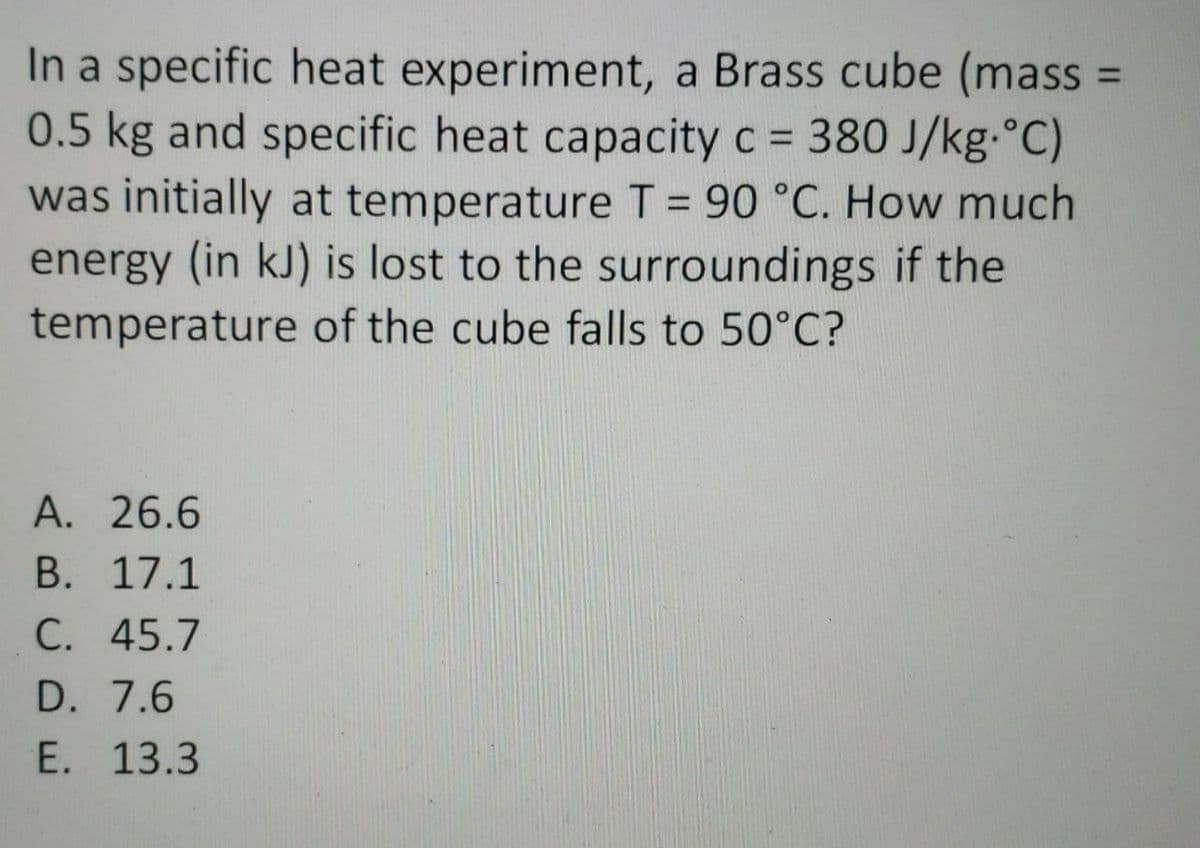In a specific heat experiment, a Brass cube (mass = 0.5 kg and specific heat capacity c 380 J/kg.°C) was initially at temperature T = 90 °C. How much energy (in kJ) is lost to the surroundings if the %3D %3D temperature of the cube falls to 50°C? А. 26.6 В. 17.1 C. 45.7 D. 7.6 E. 13.3
In a specific heat experiment, a Brass cube (mass = 0.5 kg and specific heat capacity c 380 J/kg.°C) was initially at temperature T = 90 °C. How much energy (in kJ) is lost to the surroundings if the %3D %3D temperature of the cube falls to 50°C? А. 26.6 В. 17.1 C. 45.7 D. 7.6 E. 13.3
College Physics
10th Edition
ISBN:9781285737027
Author:Raymond A. Serway, Chris Vuille
Publisher:Raymond A. Serway, Chris Vuille
Chapter11: Energy In Thermal Processes
Section: Chapter Questions
Problem 15P: What mass of water at 25.0C must be allowed to conic to thermal equilibrium with a 1.85-kg cube of...
Related questions
Question
I need the answer as soon as possible

Transcribed Image Text:In a specific heat experiment, a Brass cube (mass
0.5 kg and specific heat capacity c = 380 J/kg.°C)
was initially at temperature T = 90 °C. How much
energy (in kJ) is lost to the surroundings if the
temperature of the cube falls to 50°C?
A. 26.6
В. 17.1
С. 45.7
D. 7.6
E. 13.3
Expert Solution
This question has been solved!
Explore an expertly crafted, step-by-step solution for a thorough understanding of key concepts.
This is a popular solution!
Trending now
This is a popular solution!
Step by step
Solved in 2 steps with 2 images

Knowledge Booster
Learn more about
Need a deep-dive on the concept behind this application? Look no further. Learn more about this topic, physics and related others by exploring similar questions and additional content below.Recommended textbooks for you

College Physics
Physics
ISBN:
9781285737027
Author:
Raymond A. Serway, Chris Vuille
Publisher:
Cengage Learning

College Physics
Physics
ISBN:
9781285737027
Author:
Raymond A. Serway, Chris Vuille
Publisher:
Cengage Learning